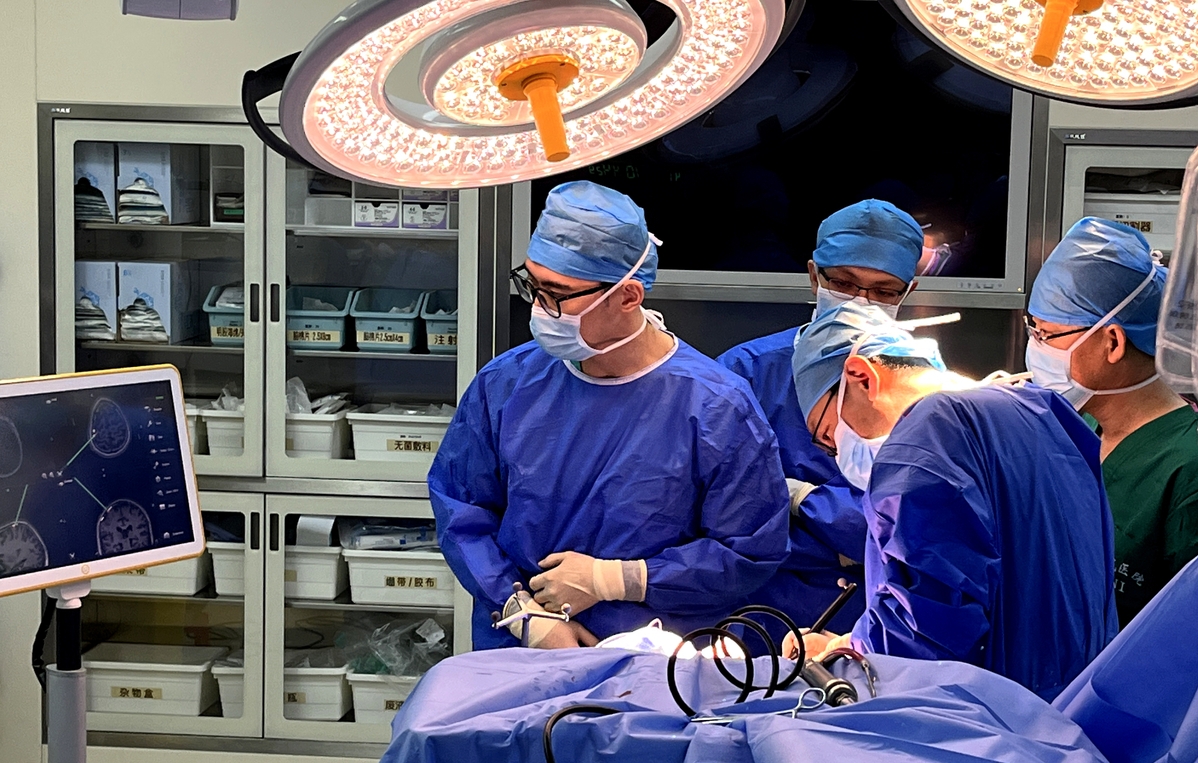
People's Daily Newspaper Online 06/02/2024 09:40
Chinese researchers recently announced that the first two quadriplegic patients implanted with a Chinese brain-machine interface have regained some of their motor skills.
The first patient is a 54-year-old man who was paralyzed from the neck down after a car accident in 2010. He was implanted with an implant that links brain waves to a computer as part of a clinical trial conducted at the Xuanwu Hospital of Capital Medical University in Beijing.
The implant, called Neuroelectronic Opportunity, is about the size of a coin. It is wireless and minimally invasive. Two implants were placed inside the patient's skull in an area that prevents damage to nerve tissue.
The patient left the hospital after ten days. Tsinghua University, which developed the system in collaboration with Xuanwu Hospital, said that after three months of rehabilitation at home, he is now able to hold the bottle and drink while wearing a special glove that is neurally connected to the implant.
A photo of Zhao Guoguang (first from right), a professor at Xuanwu Hospital, and members of his team during the implantation of a brain stimulation system as part of a clinical trial in Beijing. (Photo/Xinhua)
In a statement issued on January 31, the university said that once the machine learning algorithm is implemented, the patient will be able to feed himself. “When the system is further developed, the patient will be able to perform many movements with his hand and many functions will be restored.”
“The functions damaged by the spinal cord injury are also showing signs of improvement, and the patient said he began to feel temperature differences in his hands,” said Zhao Guoguang, director of Xuanwu Hospital and head of the surgery team.
The second patient, who suffered a spinal cord injury, underwent surgery at Beijing Tiantan Hospital. The system functions normally and the patient undergoes rehabilitation at home.
A brain-machine interface system enables communication between the brain and an external device, such as a computer, by tracking and analyzing brain waves.
Experts say it could help patients with spinal cord injuries or diseases such as amyotrophic lateral sclerosis and epilepsy regain mobility.
Chinese researchers said the Chinese brain-machine interface system has an advantage over its foreign counterparts in that the implantation process will not damage brain tissue, including avoiding inflammation and scarring. Another advantage is that the system does not require inserting a battery inside the body.
(Web Editor: 孙鸿宇, Yishuang Liu)






